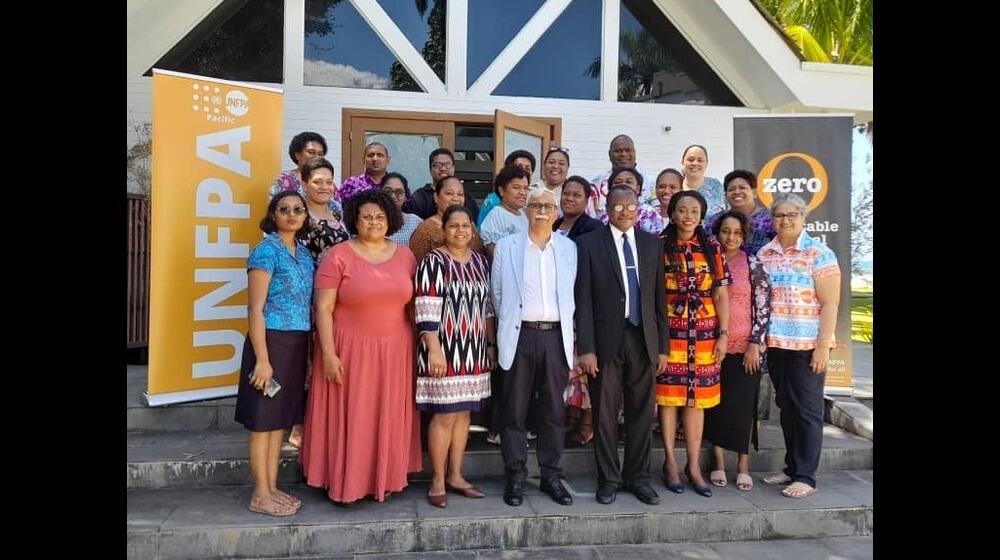SUVA, Fiji - “No woman should die whilst gifting life to this world,” says Dr. Litia Narube, Head of Obstetrics and Gynaecology of the Fiji National University. Alarmed by a recent revelation that Fiji’s Maternal Mortality Ratio (MMR) is worse than the global SDG target, the Ministry of Health and Medical Services (MHMS) has developed a new systematic procedure to inquire into maternal mortality cases to determine the causes and avoidability of deaths, with support from the United Nations Population Fund (UNFPA) Pacific. MHMS with UNFPA has also completed the training of key health officials who undertake such maternal death audits, to enable actions that will prevent future maternal deaths in the country.
The Government of Fiji’s 2023 Voluntary National Review (VNR) report on the progress towards the Sustainable Development Goals of the 2030 Agenda, launched formally on the UN Day (24 October), cited Fiji’s MMR as 86 women dying as a result of pregnancy or childbirth per 100,000 live births, falling short of the SDG3 target of 70/100,000.
As a major response to improve the quality of maternal and newborn healthcare and end preventable maternal and neonatal deaths, MHMS with UNFPA support developed the nation’s first-ever Maternal and Perinatal Death Surveillance and Response (MPDSR) guidelines. MPDSR is a qualitative in-depth investigation into the causes, circumstances and underlying factors of all maternal and perinatal deaths, which effectively guides actions to eliminate preventable maternal and perinatal deaths. It also reinforces the country’s health management information system, as MPDSR counts every death, and thereby enables an assessment of its true magnitude as well as the impact of actions taken to reduce it.
From 31 October to 3 November 2023, MHMS and UNFPA organized an intensive workshop in Suva, Fiji, to validate the MPDSR guidelines to ensure the alignment and compliance with the global standard, inviting 23 experts across the country who will constitute members of Fiji’s MPDSR Committees at all levels of the health sector, including Dr. Narube and other obstetricians, paediatricians, Sub-Divisional Medical Officers, midwives, and Data Officers from the Ministry’s Health Information Unit (HIU). The participants also went through a Training of Trainers (ToT) towards becoming ‘certified MPDSR trainers,’ based on a newly developed national “MPDSR Training Package,” so that they themselves can readily conduct MPDSR at their respective health institutions, and also train their fellow health service providers on the new MPDSR tools.
The validation of national MPDSR guidelines, and ToT on MPDSR, were both not only conducted for the first time in Fiji, but also first among all the 14 Pacific island countries and territories that the UNFPA Pacific Sub-Regional Office (Fiji) serves.
UNFPA Pacific Deputy Director, Dr. Mateen Ahmed Shaheen, who opened and supported throughout this groundbreaking workshop said, “When maternal and perinatal death reviews are completed properly and evidence-based recommendations are implemented, coupled with capacity development of relevant stakeholders at national, divisional and local levels, maternal and perinatal mortality can be drastically reduced. Let us together aim at reducing all preventable maternal and perinatal deaths from the country. Zero is the only acceptable number.”


